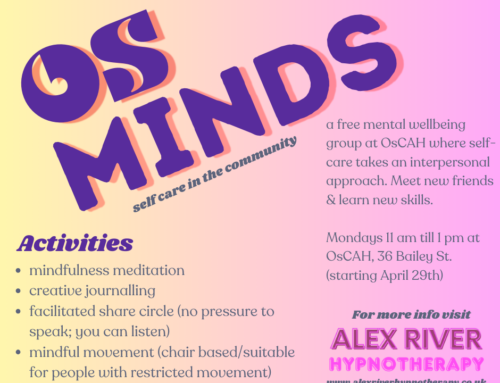Children’s mental health week is Friday 4 to 10 February. Counsellor Carol Shields from Oswestry explains the importance of children seeking help when they need it.
It is known, to many in the profession of counselling and other therapies, that young people are struggling to cope with the pressures and complexities of modern-day living. These struggles can manifest themselves in a variety of anxieties that can affect their wellbeing within their home, school or relationships and it will come as no surprise that the Mental Health Foundation report that number of children experiencing problems has risen in the last 30 years.
“When we are young our capacity to absorb information is at its greatest,” says Carol. “This is a critical time in our development as our thoughts and understanding of life are starting to take shape and how we perceive and interpret the world around us at this time can influence future relationships with ourselves, friends and employers.
“Children’s bodies and minds change rapidly and nowadays they seem to be up against many new challenges that can be difficult for adults, let alone younger people to cope with and this can lead to anxieties and other negative feelings. In some cases these feelings can become pronounced and begin to impact on the wellbeing of the child. If this happens it is important that parents/carers or other professionals seek support for the child to help them manage their emotions.”
With the recent media coverage in relation to mental health, there is an increase in awareness of the importance of our minds, but there’s still some way to go. Emotional wellbeing is just as important as physical health and there is support out there for those who wish to seek it.
According to the Mental Health Foundation, nearly one in ten children and young people aged between five and 16 are affected by a mental health problem. Despite the awareness of mental health and wellbeing increasing, it is estimated that 70% of young people who experience a mental health problem do not receive the appropriate support.
The BACP (British Association for Counselling & Psychotherapy) has recorded new figures released by Childline (NSPCC) which state that the number of children and young people now seeking help for their anxieties has almost doubled in the last two years.
“Clearly this is a trend we want to see continued as I believe that asking for help is a very positive step forward and we should not necessarily consider asking for help as the last resort, but the first. If you are concerned about a child or young person, encourage your child to speak up and talk about their problems and reassure them that they are not alone and that you are there for them. It is also important to remember that early intervention such as talking therapies can be extremely effective and a way of preventing more serious issues at some point in the future.”
Carol provides one to one counselling and mindfulness groups at Lakelands Academy, Derwen College, offers counselling for young people with learning difficulties and mindfulness and movement therapy groups.
She uses a variety of resources to help children and young people talk about how they are feeling, including visual exercises, play therapy techniques and sand/modelling clay, which are used to identify their life experiences and behaviour. Carol also has her own practice providing counselling for individuals from juniors to adults and runs emotion and wellbeing groups.
You can her on Facebook: Oak Tree Counselling.








